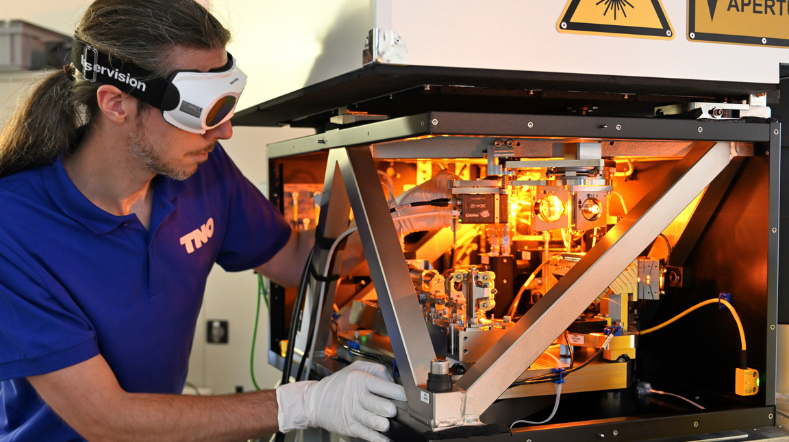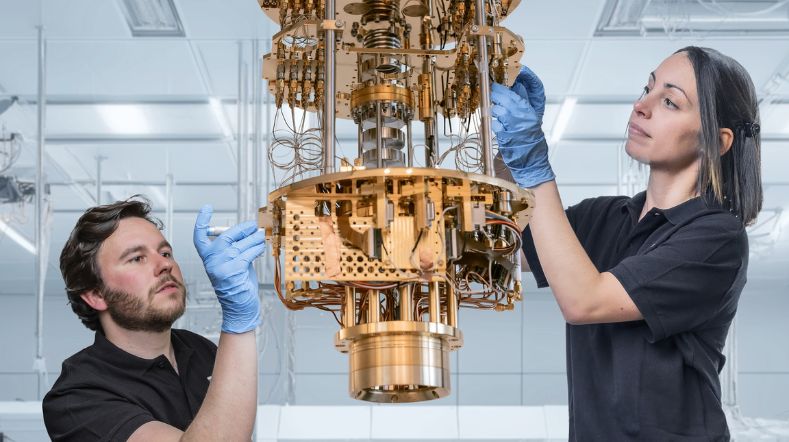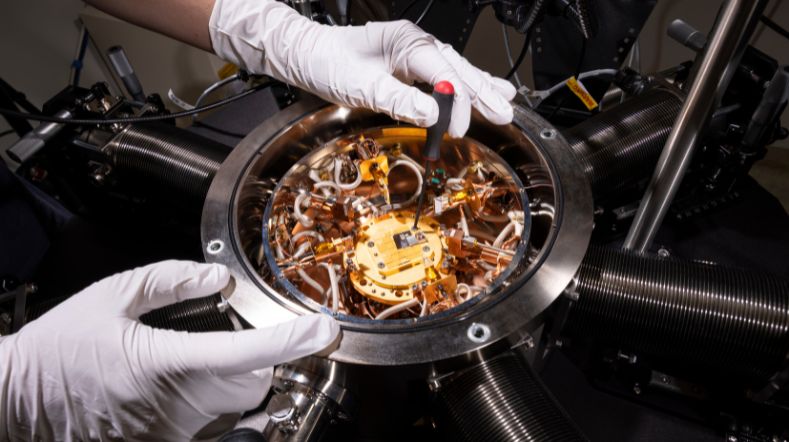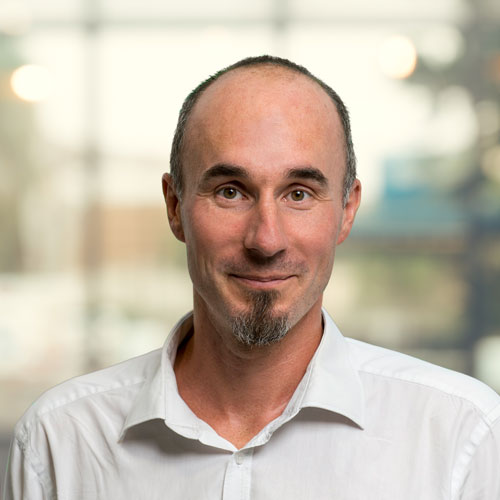
Quantum technology
For years, TNO stood at the forefront of research and early development of quantum technologies. As the quantum industry emerges, we are ready to put our knowledge, expertise, and networks to work for the companies who will drive the first wave of industry-ready innovations. From workflows to prototypes, and from manufacturing to testing, TNO Quantum technology is a true partner in quantum innovation.
Driving innovation
As start-ups and tech companies race to be the first to market with groundbreaking quantum innovations, they encounter numerous challenges. These include building extremely precise quantum devices, optimising manufacturing processes, and addressing complex issues related to measurement, control, and stabilisation. TNO Quantum technology has proven expertise in the design, (nano)fabrication, testing, and validation of quantum systems and devices. As an independent organisation, TNO ensures that companies’ intellectual property remains protected, while addressing their challenges effectively.
TNO started getting involved with the development of quantum technologies in 2014, and began to forge partnerships and expanding our knowledge and experience in this domain. Today, we stand ready to put our expertise to work to advance the entire quantum ecosystem to the next level. Our expertise ranges from the development of workflows for flawless device prototypes to the development of the new equipment needed to build those devices. We develop and improve quantum system architectures, operating systems (hardware and software), and data analyses and control algorithms that drive these innovations to perform at their peak.
Significant partnerships
Over the years, TNO has built expertise in quantum technologies by blending our own targeted research and development with significant strategic partnerships. As a founding partner in QuTech, TNO contributed to the realisation of Quantum Inspire, the world’s first, cloud-based, full-stack prototype quantum computer. Quantum Inspire enables co-development and collaboration that is advancing the entire quantum computing ecosystem.
Within collaborations like Quantum Delta NL, TNO contributes to building a powerful ecosystem of quantum technology development in the Netherlands. From computing and communication to sensor development, we work within Quantum Delta NL to drive Dutch innovation and drive the societal impact of these technologies. As a resident of Quantum Delft, we help to realise the newest advances in the technology.
Spinning off for success
Within QuTech, TNO identified significant roadblocks in the successful production of quantum chips. Among those roadblocks was an effective system for testing the chips for ultimate precision. Since existing technology could not effectively perform these tests, TNO designed and optimised a new hardware and software system. Now, that technology is the first in the world to be commercially available to the entire quantum value chain through Orange Quantum Systems – a TNO spin-off company.
Addressing challenges together
Whether in public consortia, TKIs, partnerships or private contract work, TNO Quantum technology is eager to help start-ups, scale-ups, and other organisations succeed in the new quantum industry. Contact us today to find out how we can put our expertise to work for you, and drive the entire quantum value chain towards the future.
Patents and publications
TNO has already published countless papers and registered dozens of patents related to our quantum technology innovations. Through special licensing agreements, our patented techniques and technologies can be made available to organisations seeking elegant solutions to their quantum tech challenges. Contact us to find out more.
Get inspired
Optics


Art and quantum: student team renders superposition tangible with TNO


TNO expands quantum information technology testing capabilities to support startups


Time setter story: Max van Strien


TU Delft appoints TNO’s Richard Versluis as Quantum and Computer Engineering Fellow


